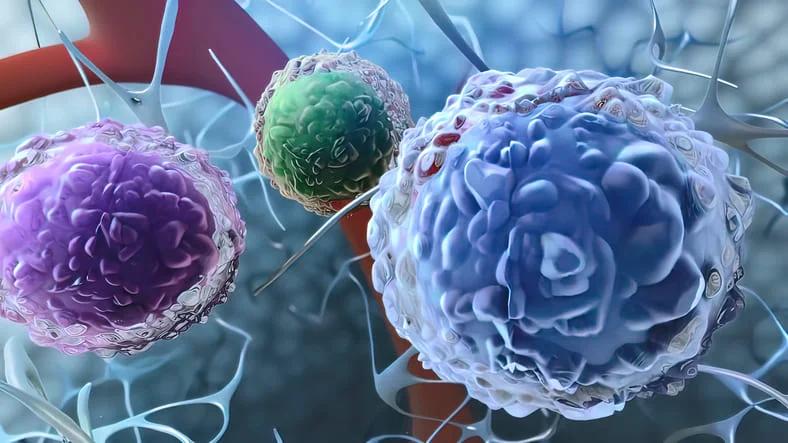KEY TAKEAWAYS
- The phase I trial aimed to evaluate the outcomes of anti-CD19 CAR T-cell therapy in pts with PMBCL.
- Key analytical determinants were baseline characteristics, bridging therapy, toxicity, response rate, PFS & OS.
- Axi-cel demonstrated higher efficacy than tisa-cel, and a lack of response to bridging therapy did not correlate with increased relapse risk.
The limited results from treatment outcomes for relapsed or refractory primary mediastinal B-cell lymphoma (PMBCL), despite CAR T-cell therapy’s (NCT04162340) success in other similar lymphomas, drove the focus of the study.
Jean Galtierm and the team aimed to assess the efficacy and toxicity of anti-CD19 CAR-T cell therapy in patients (pts) with relapsed or refractory PMBCL, a rare subtype of large B-cell lymphoma (LBCL) with generally good outcomes after frontline immunochemotherapy concluded that all pts with confirmed PMBCL who received anti-CD19 CAR T-cell therapy in focused on baseline characteristics, bridging therapy, toxicity, response rate, progression-free survival (PFS), and overall survival (OS).
Researchers selected pts diagnosed with PMBCL who already received anti-CD19 CAR T-cell between October 2018 and March 2023 in; documented in the nationwide DESCAR-T registry. Key baseline characteristics were bridging therapy, toxicity, response rates, PFS, and OS.
They observed that 69 pts with relapsed or refractory PMBCL were treated with either axi-cel (n=55) or tisa-cel (n=14), and were followed for a median of 20 months.
For the cohort the median age was 34 years, with a sex ratio of 0.9 males to 1 female. Following a median of 2 prior treatment lines, including 1 patient who had undergone autologous HSCT, a significant subgroup had received either 1-year prior line of therapy or 4 or more lines.
In the duration of the study, the median disease stage was II, and the median aaIPI score was 1. Bridging therapy, including radiotherapy in 17% and checkpoint inhibitors in 29% of cases, was administered to 84% of pts, with over half achieving a response before CAR-T cell infusion.
Among those treated with axi-cel, the complete response (CR) and partial response (PR) rates were 80% and 11%, respectively, with a 1-year PFS of 69% and a 1-year OS of 86.5%. Notably, a lack of response to bridging therapy before axi-cel infusion did not correlate with an increased risk of relapse (P= 0.61). Conversely, among pts treated with tisa-cel (n = 12), only 33% achieved CR and 33% achieved PR, with a 1-year PFS of 14% and OS of 49%.
The study concluded that axi-cel demonstrated high efficacy in pts with PMBCL, with an 80% CR rate, a 69% 1-year PFS rate, and an 86.5% 1-year OS whereas tisa-cel showed lower efficacy, a notable lack of response to bridging therapy did not correlate with an increased risk of relapse.
The trial was sponsored by Stanford University and iCell Gene Therapeutics.
Source: https://library.ehaweb.org/eha/2024/eha2024-congress/422344
Clinical Trials: https://www.clinicaltrials.gov/study/NCT05794958 , https://www.clinicaltrials.gov/study/NCT04162340
Galtier J, Sesques P, Bachy E, et al. (2024). “Excellent outcome of pts with relapsed or refractory primary mediastinal B-cell lymphoma treated with axicabtagene ciloleucel : a study from the French DESCAR-T National registry.” Presented at EHA 2024. (abstr 422344; S240), https://library.ehaweb.org/eha/2024/eha2024-congress/422344



